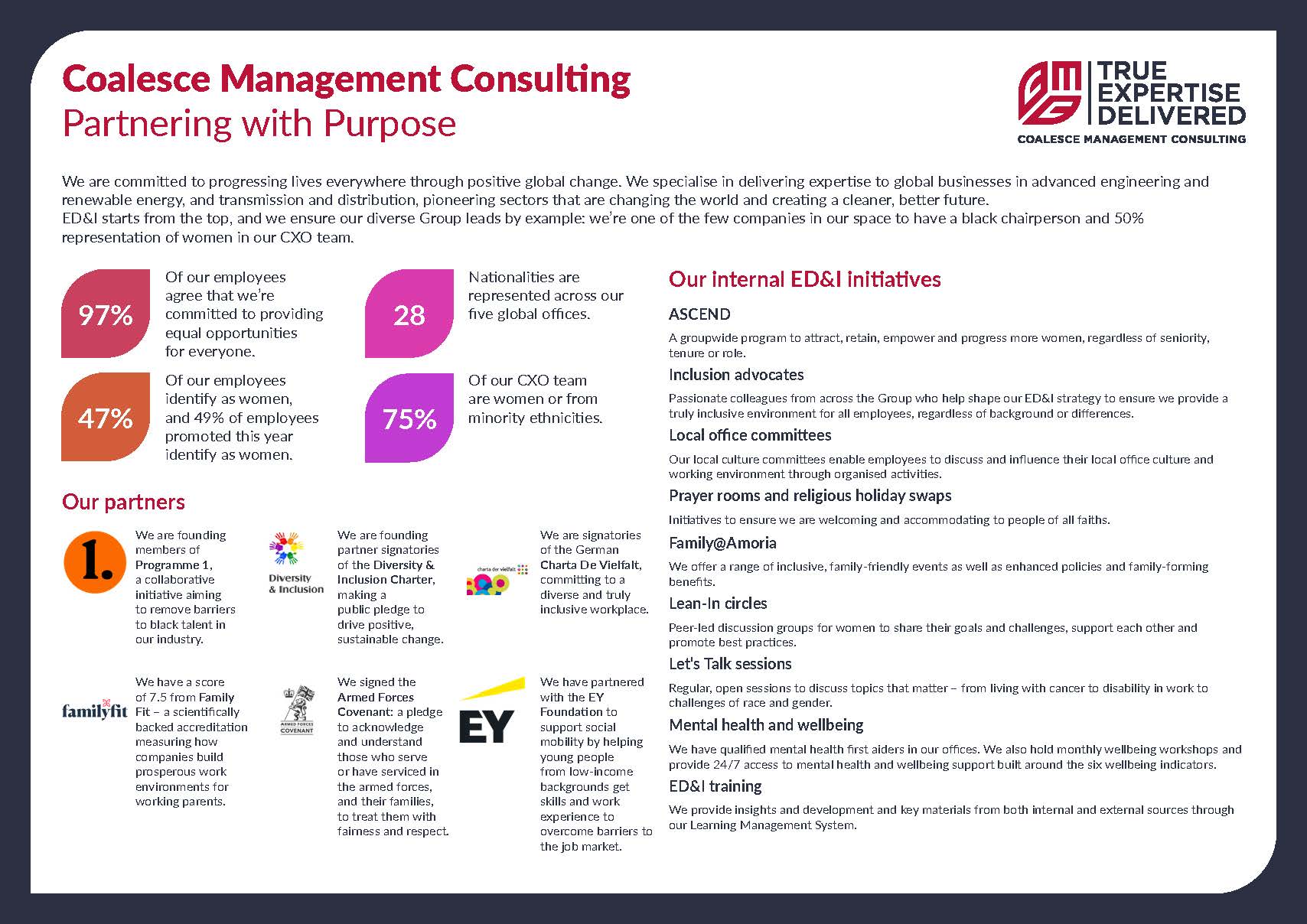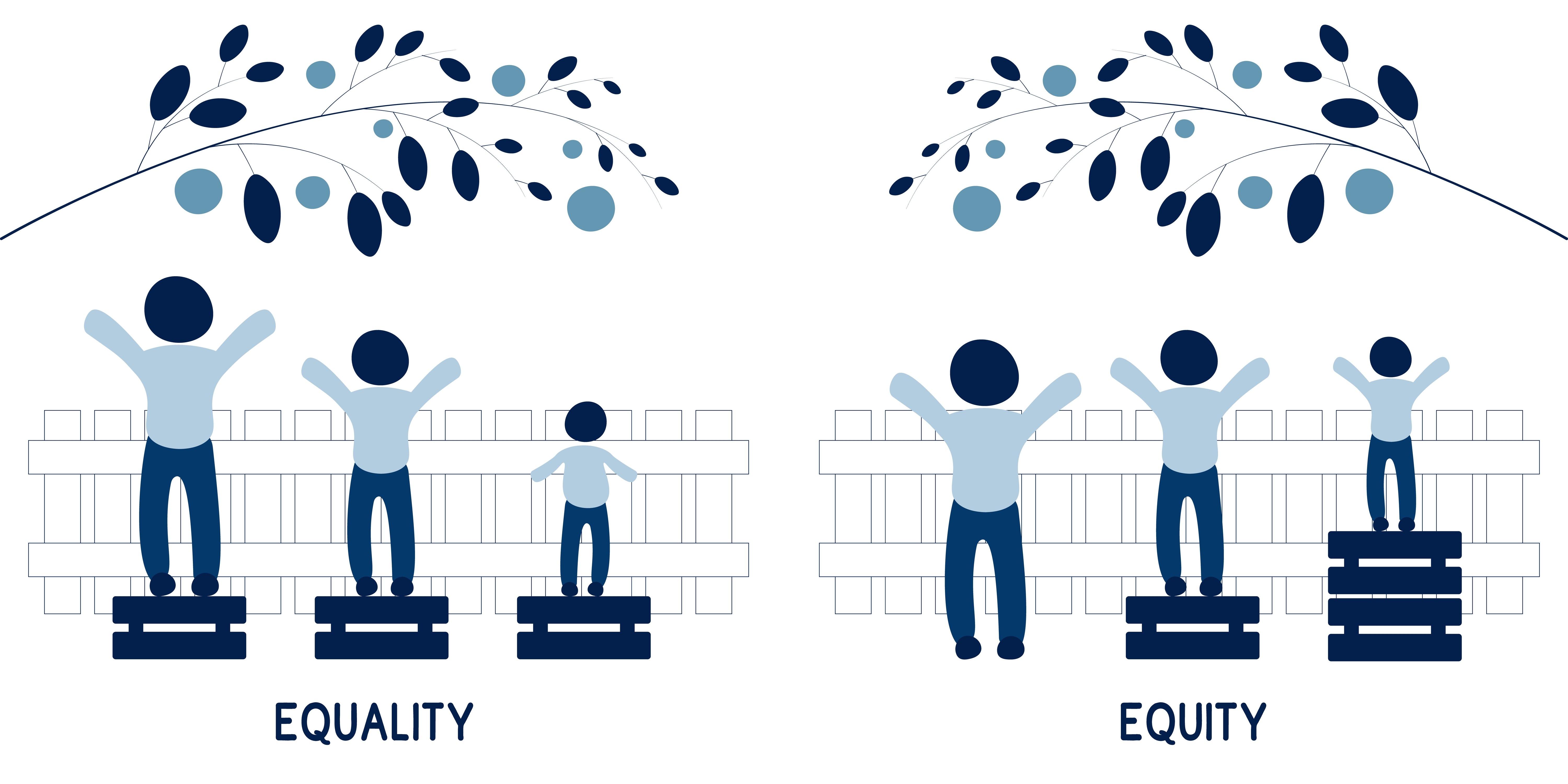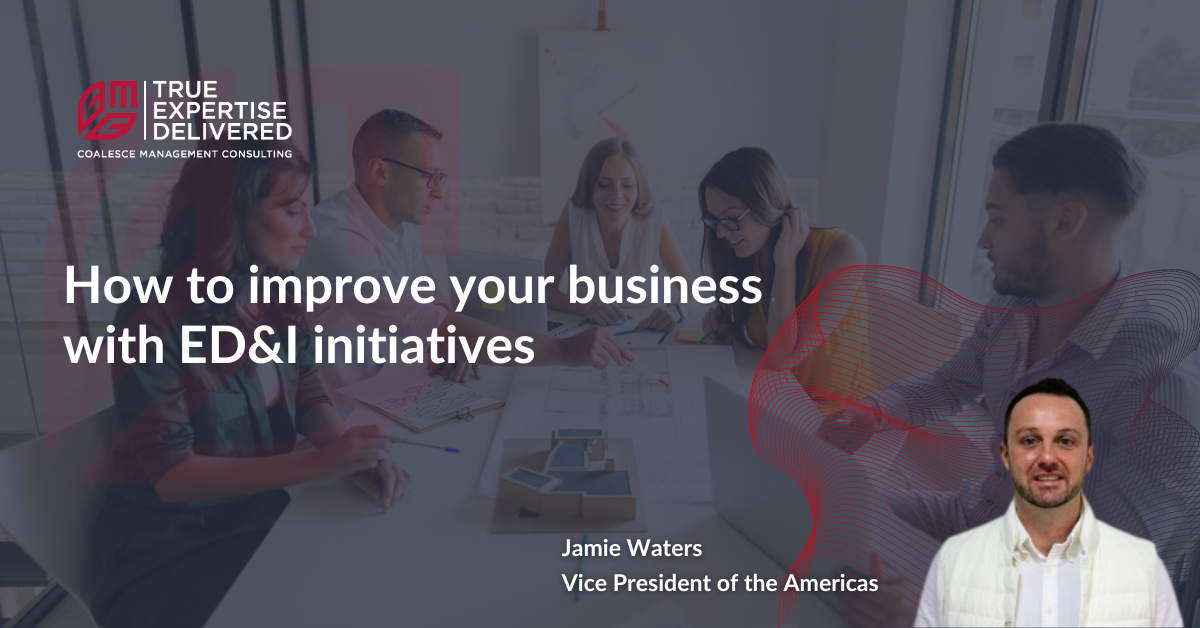The biggest conversations going on right now across US businesses are all centred on Equity, Diversity and Inclusion (ED&I) within the American workforce. The importance of introducing ED&I strategies and fostering a more inclusive workplace is no longer an afterthought or the focus only of start-ups and non-profits - they’re finally being seen as essential for businesses of all sizes, in all locations and all sectors.
We come across this all the time in conversations with our partners in Energy, T&D and Advanced Engineering across the States. Everyone wants to know how they can ensure their projects are aligned with ED&I best practices and are worked on by a diverse team of experts, and they ask for our help in delivering that.
We’re passionate about ED&I in all our operations, and we’re committed to leading by example from the top down. You can learn all about how we partner with purpose and implement internal ED&I initiatives to ensure we provide equity and fairness to all who work for us, including the consultants we place with our partners, in our factsheet:
 Click to expand the full document
Click to expand the full document
We don’t just commit to improving ourselves, though - but we share our expertise and knowledge with our partners to help them achieve their own ED&I targets. One simple way of managing this is by fostering understanding: what to look out for, what to aim for, what they need to know. It can start off with something as simple as understanding what we mean by equity, diversity and inclusion.
What is the difference between equity and equality?
The most common question we hear when we talk about equity is, “don’t you mean equality?”
The two are similar and are often used interchangeably, but actually they do hold distinct meanings:
- Equality is the principle of treating everyone the same regardless of their individual circumstances. It implies uniformity and uniform treatment - such as ensuring everyone receives the same benefits or opportunities.
- Equity, on the other hand, recognises that individuals have different needs and circumstances, and it aims to address these disparities by providing resources, opportunities or support to those who need them most. It acknowledges that though the same opportunity may be offered to everyone, it might not be achievable for some.
For an easy explanation, it’s commonly defined using a picture like this:

It’s for this reason that equity is now seen as more important within the workforce - ensuring a level playing field offering everyone fair access to opportunities. Initiatives to support this include tailored training programs, mentorships, flexible work arrangements and training of existing employees on eliminating unconscious bias in hiring.
Why you need Diversity AND Inclusion
Diversity and inclusion are often stuck together, but once again, these are separate concepts, each of which is important in the workplace.
Diversity refers to the variety of characteristics, backgrounds, preferences and perspectives within a workforce, including - but not limited to - race, ethnicity, gender, age, sexual orientation, religion, physical capabilities and socio-economic background.
Inclusion is the practice of actively involving and valuing individuals with diverse backgrounds and perspective, ensuring that the workplace is an environment where everyone feels welcomed, respected and empowered. This is more than just representation - it’s ensuring everyone has that equity of opportunity to be heard and progress.
Why is it important to have both? Consider how they could be separate:
- Diversity without Inclusion - a workplace where there are a mix of perspectives, but not all of them are being heard. This is commonly seen in businesses that employ people from a range of backgrounds, races, genders etc. but don’t have the same representation in leadership positions. Or in businesses where the culture targets one particular group, while marginalising others that also work there.
- Inclusion without Diversity - It can seem like a positive move to offer equitable opportunities for staff to have their voices heard, to progress to leadership positions, to shape the working culture to their preferences. But if that comes from a homogenised workforce without that mix of voices, backgrounds and perspectives then it creates a workplace that locks out potential new employees who may not feel they “fit” with the existing workforce.
Why ED&I is important
The moral incentive to create a fair and inclusive workforce where everyone can have equal access to opportunities and resources and feel that they are welcomed, respected and empowered to contribute to their fullest potential is obvious, and it’s the responsibility of businesses to provide that.
But for those still holding out, there is a strategic benefit as well. ED&I incentives are there to strengthen your workforce, delivering greater success, innovation and sustainability.
Diversity delivers:
- Enhanced creativity and innovation drawn from the experiences and perspectives of people with different backgrounds and views.
- A broader talent pool of expertise from people who may be turned away from a less inclusive workplace.
- Improved decision-making from employees who feel comfortable sharing their perspectives and ideas to overcome complex business challenges.
- Better customer understanding from representation of different customer segments.
- Enhanced reputation of social responsibility which can be reflected in more clients wanting to do business with you, more customers wanting to use your services or more candidates wanting to join your teams.
- Economic Benefits: Numerous studies have shown a correlation between diversity and financial performance. For example, McKinsey's "Diversity Matters" report found that companies in the top quartile for racial and ethnic diversity are 35% more likely to have financial returns above their respective national industry medians.
- Employee engagement and retention as those who feel valued and represented feel more satisfied with their jobs.
It also helps to be vocal and open about your goals and achievements regarding ED&I, because people are increasingly paying attention to them. In a 2022 EY U.S. Generation survey, more than 90% of employees said that the business culture impacts their decision to stay with a company.
People want to be part of a company with a positive, inclusive, diverse and equitable culture so it is up to businesses to deliver that. We commit to providing a range of diverse consultants to deliver expertise on the projects we work on, and we support our partners to ensure that they’re offering a positive workplace for those consultants.
Get in touch with Coalesce Management Consulting today to find out how our specialist consultants can help you with your ED&I goals and your engineering requirements.


